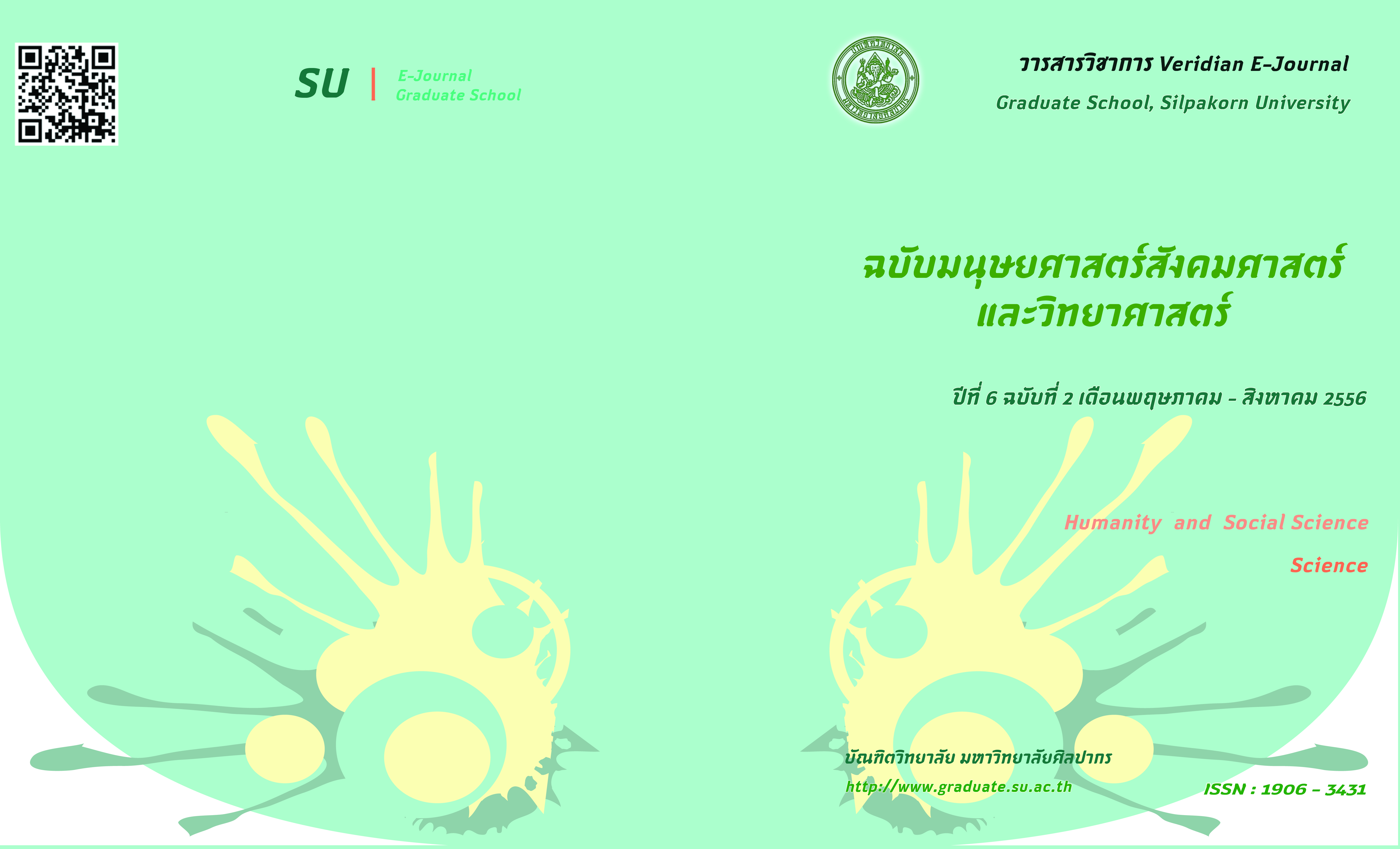คุณลักษณะที่พึงประสงค์ของครูฝึกฝีมือแรงงานในสถาบันพัฒนาฝีมือแรงงาน กรมพัฒนาฝีมือแรงงานกระทรวงแรงงาน
Main Article Content
Abstract
บทคัดย่อ
การวิจัยครั้งนี้มีวัตถุประสงค์เพื่อ 1. ศึกษาคุณลักษณะที่พึงประสงค์ของครูฝึกฝีมือแรงงานในสถาบันพัฒนาฝีมือแรงงาน กรมพัฒนาฝีมือแรงงาน กระทรวงแรงงาน 2.เปรียบเทียบคุณลักษณะที่พึงประสงค์ของครูฝึกฝีมือแรงงานโดยจำแนกตามตัวแปรอายุ วุฒิการศึกษา รายได้ ประสบการณ์ทำงานและ ภูมิภาค ประชากร คือ ผู้เชี่ยวชาญเกี่ยวกับการพัฒนาคุณลักษณะครูฝึกฝีมือแรงงาน หัวหน้ากลุ่มงานและครูฝึกฝีมือแรงงาน ที่ปฏิบัติงานในสถาบันพัฒนาฝีมือแรงงาน 12 ภูมิภาค กลุ่มตัวอย่าง จำนวน 199 คน โดยใช้วิธีการสุ่มแบบแบ่งกลุ่ม (cluster random sampling) เครื่องมือที่ใช้ในงานวิจัย ได้แก่ แบบสัมภาษณ์แบบมีโครงสร้าง และแบบสอบถามประมาณค่า 5 ระดับ (Rating Scale Questionnaire) ข้อมูลที่ได้จากการสัมภาษณ์ใช้การวิเคราะห์เนื้อหา (Content analysis) วิเคราะห์ข้อมูลด้วยค่าความถี่ (frequency) ค่าร้อยละ (Percentage) ค่าคะแนนเฉลี่ย () ส่วนค่าเบี่ยงเบนมาตรฐาน (S.D.) ใช้ t-test แบบ Independent และการวิเคราะห์ความแปรปรวนทางเดียว (One way Analysis of Variance)
ผลการวิจัยพบว่า
1. ในภาพรวมครูฝึกฝีมือแรงงานในสถาบันพัฒนาฝีมือแรงงาน กรมพัฒนาฝีมือแรงงาน กระทรวงแรงงาน มีคุณลักษณะที่พึงประสงค์อยู่ในระดับมาก เรียงตามลำดับคะแนนเฉลี่ยได้ดังนี้ ด้านคุณธรรมจริยธรรม (มีความเอาใจใส่ต่องานที่ปฏิบัติ,มีจรรยาบรรณและความซื่อสัตย์ต่อวิชาชีพ,เคารพสิทธิของตนเองและผู้อื่น) ด้านบุคลิกภาพและมนุษยสัมพันธ์ (เป็นมิตรกับผู้เรียน,มีความรับผิดชอบและตรงต่อเวลา, สามารถทำงานเป็นทีม) ด้านการสอน (มีความชำนาญในสาขาวิชาชีพที่ตนสอน ,สามารถสาธิตงานในสาขาวิชาชีพที่ตนสอนได้อย่างถูกต้องและเข้าใจง่าย , สามารถจัดการความรู้ในสาขาวิชาชีพที่ตนสอนได้อย่างเหมาะสม ด้านการให้คำปรึกษาแนะแนว (สามารถเป็นที่ปรึกษาให้กับผู้เรียนและเพื่อนร่วมงาน,เปิดโอกาสให้ผู้เรียนปรึกษาหรือแนะแนวตามความต้องการของผู้เรียน,สามารถรักษาความลับของผู้เรียน) และ ด้านความรู้และทักษะวิชาชีพ (มีความรู้และทักษะในสาขาวิชาชีพที่สอนเป็นอย่างดี, มีทักษะการใช้เครื่องมือเครื่องจักรและอุปกรณ์ในการเรียน,มีความรู้เรื่องมาตรฐานของสายงานวิชาชีพ)
2. เมื่อจำแนกตามตัวแปรอายุ วุฒิการศึกษา รายได้ ประสบการณ์ทำงาน และภูมิภาค พบว่าคุณลักษณะที่พึงประสงค์ของครูฝึกฝีมือแรงงานในสถาบันพัฒนาฝีมือแรงงาน กรมพัฒนาฝีมือแรงงาน กระทรวงแรงงาน แตกต่างกันอย่างไม่มีนัยสำคัญทางสถิติ ที่ระดับ 0.05
Abstract
The propose of this research were to 1) study Desirable Characteristics of Skilled-Labour Trainer in the Institute for Skill Development, Ministry of Labour. 2) compare desirable characteristics of Skilled-Labour Trainer. The population of the research were the leaders and Skilled-Labour Trainer in The Institute for Skill Development. The sample group consisted of 199 person selected by cluster random sampling method. The instruments used in this research were structured interview and rating scale questionnaires. The statistics used to analyzed data were frequency, percentage, means, standard deviation, t-test and one way Analysis of Variance. Data from interview was analyzed using content analysis.
The research results were as follows:
1. Desirable Characteristics of Skilled-Labour Trainer in the Institute for Skill Development, Ministry of Labour was at a high level are as follows: Characteristics related to Ethics (Respect to the work performed. , Ethics and integrity with professional. , Respect the rights of self and others.) Characteristics related to Personality and human relationship (Friendly to the students. ,Responsible and punctual., Can work as a team.), Characteristics related to Teaching (Expertise in the fields they teach. , Demonstrations in the fields they teach accurate and easy to understand. , Knowledge Management professional in their teaching accordingly.) Characteristics related to Guidance and Counseling (A mentor to students and colleagues., An opportunity for students and guidance counselors to meet the needs of the students., Maintain the confidentiality of the students.) and Characteristics related to Knowledge and Vocational skill (the knowledge and professional skills in the field of teaching as well., Skills using tools and equipment in the classroom., A knowledge of the standards of the profession.)
2. The comparison of desirable characteristics of Skilled-Labour Trainer classified by age degree income work experience region variables were not statistically significant different at the level 0.05.

